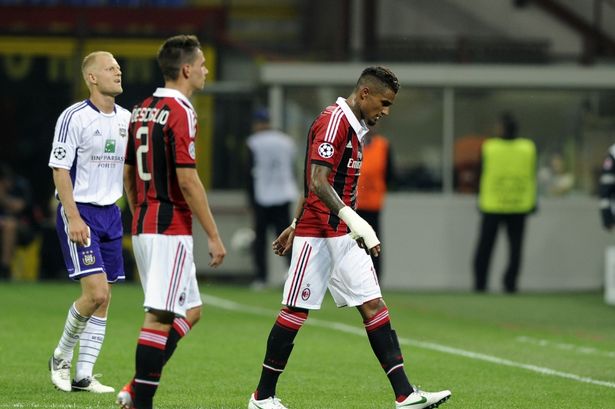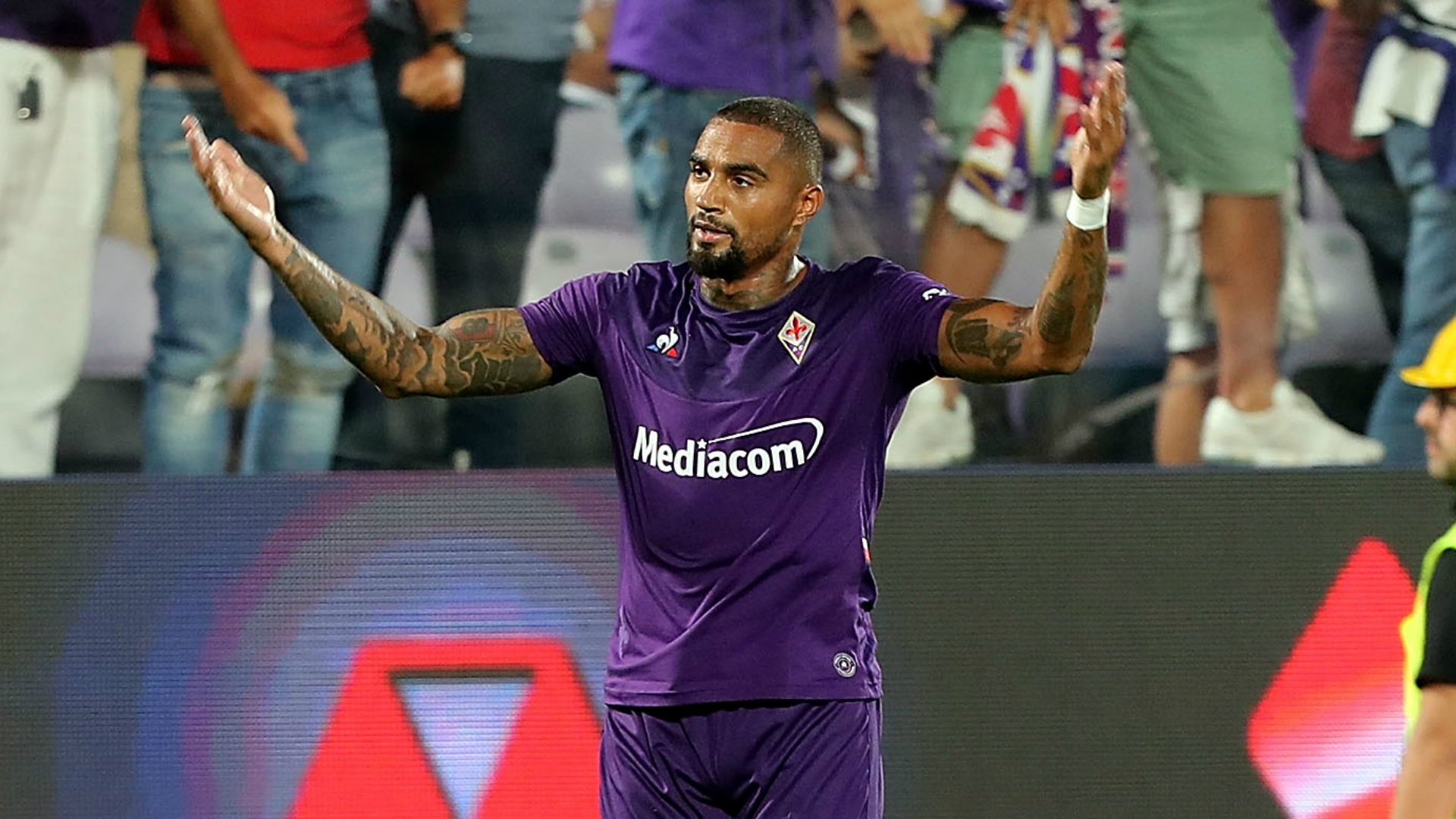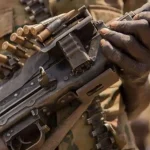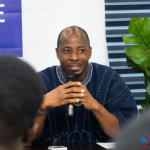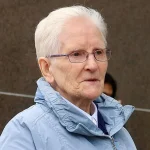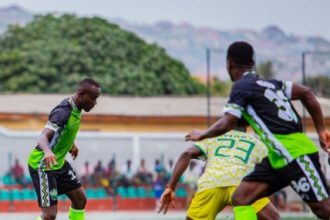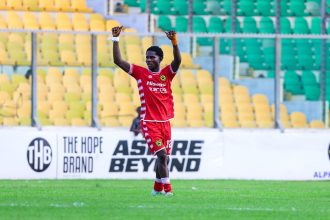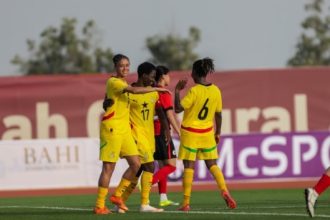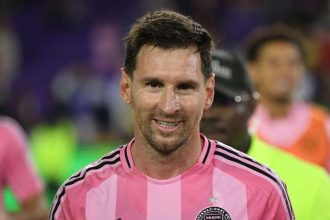This is not new.
Let’s not pretend to be shocked now.
Seven years ago, I was playing for Milan in a friendly game when a group of fans made monkey noises every time one of our black players touched the ball.
After 26 minutes I told the referee, “If they do that again, I’m gonna stop playing.”
He said, “No, don’t worry, just continue.”
Then, as I was trying to dribble past a player, I heard them again.
I grabbed the ball, booted it toward the stands and began to walk off the pitch.
It wasn’t the first time I had been racially abused. But this time I just exploded. When the referee tried to get me to play on, I said, “Shut the fuck up.” (Sorry for my language.) I told him, “You had the power to do something. You did nothing.” When a rival player wanted me to stay on, I said, “You shut the fuck up as well. What did you do about it? Do you like what they’re doing?”
As I walked towards the tunnel, our captain, Massimo Ambrosini, asked me, “Are you sure about what you’re doing?”
I said, “One hundred percent sure.”
Let me take a moment to explain why I did what I did. Some people have said that I’d never have done it in a Champions League game, where our team might be deducted points or whatever. But I couldn’t control it. I had bottled up so much anger and pain, and that day the lid just blew off. I know it’s difficult for white people to understand, but that’s because they have never been hated because their skin is a different colour. Still, let me try to explain.
When I was nine years old, I went to play in a tournament in East Germany. I grew up in a neighbourhood in Berlin that was poor, and that was also home to people who were from every corner of the world: Russia, China, Egypt, Turkey, everywhere. When we fought each other, it was because we disliked each other in that moment, not because of discrimination. I never experienced racism there.
But at the tournament in East Germany, I heard parents shouting at me from the sidelines.
“Tackle the n*****.”
“Don’t let the n***** play.”
I was so … confused. I had only heard that word like maybe in a song or a movie or something, but
I knew it was something against my colour. I felt so alone. I felt as if I was in a place where I was not supposed to be — but this was only a six-hour drive from Berlin. How could they love me in one part of the country and hate me in another just because I’m a different colour? As a kid, you don’t understand that.
I had never spoken to anyone about how to deal with a situation like that. So on the bus back to Berlin, I burst into tears. My teammates started crying, too. None of us understood what had happened. I never told my mum about it. I just ignored it and kept going. I thought, It’ll go away.
But it didn’t. And every time I played in East Germany, it got heavier.
“For every goal you score, we’re gonna give you a banana.”
“I’m gonna put you in a box and send you back to your country, fucking n*****.”
It hurt so badly. When I was 14, I asked my teacher, “Do you see me differently from the other kids?”
He said, “No. Why?”
I said, “So why do they see me differently in the east? This is my country. I’m German. My mum’s German. So why do they want to send me away?”
He explained that there are just some people in this world who are stupid. But I began to cry. I still couldn’t understand it. And soon the confusion turned into suspicion. You begin to think that people don’t like you, even though you don’t know them. Every mixed-race guy in Germany has this. It’s like, Why are you looking at me? You don’t like me? You want trouble? Let’s go.
I became aggressive. Disturbed. I got red cards all the time. I was a hothead.
But you know what the worst part was?
No one ever stood up for me.
They knew what was happening to me. They heard the racism — and they just accepted it. The parents stayed quiet. The referee? Nothing. The coach? “Just ignore it.”
So I did. I stored my anger inside. I became numb to it.
But when I heard those monkey noises in January 2013, all the pain, all the sadness — it all came out. I snapped. I didn’t care if I got in trouble. I had worked all my life to play for one of the biggest teams in the world, and now I was going to be treated like I was when I was a kid?? I just went, No. I’m done with this. I’m going to fight these guys.
As I walked off, a lot of people stood up and applauded me. And then — and this is the key — my teammates walked off with me. Not just the black ones. All of them. I still get goose bumps talking about that. When I got to the dressing room, I took off my clothes just to show everyone that I was not going back out there. The referee came in and asked us, “Do you want to continue playing?” And at that moment Ambrosini stood up and said, “If Prince doesn’t play, no one plays.”
Chapeau.
That episode became huge news around the world. Within a day they knew about it in Ghana, in China, in Brazil. The press was all over it. Big players like Cristiano Ronaldo and Rio Ferdinand were supporting me and talking about what a disgrace the supporters were. My phone blew up with calls and messages. Overnight I became an ambassador for the fight against racism.
None of that happened because a black person walked off the pitch. No.
It happened because white people walked off with him.
That was the message that changed the world.
At least it did for a little while.
At the time I thought that this could be the change we needed. I really did. FIFA invited me to meet Joseph Blatter. He asked me, “What can we do about it?” Then in March, FIFA set up an anti-discrimination task force and invited me to join it. It seemed perfect. I would train and play games and stuff, but I would also give these people input, and then they would introduce campaigns, rules and punishments. I also gave Blatter a suggestion: To put cameras and microphones in the stadiums. That way, if somebody chanted something racist — BANG, out.
I told Blatter, “Listen, try this. If it works, you’re a hero. If it doesn’t, O.K., you tried.”
After that, the task force had meetings. We talked and exchanged some emails.
But nothing really happened. Whenever I was playing people began to target me, hoping that I’d go nuts and walk off again. I’d go to the referee and tell him to do something, they would make an announcement over the stadium speakers, and then after a minute of quiet, the fans would just keep going. A month later, the media stopped talking about it.
And then in September 2016, I received an email from FIFA. I will never forget what it said.
It basically read, “The task force has fulfilled its mission. We did our job.”
They closed it down.
I called my agent and said, “This is a joke.” What did they achieve? What did they do? They fined teams 30,000 euros? And then the fans could return to the stadium the next day?? And their kids are going to see that and take that as an example??? What is 30,000 euros to a club? Nothing. That’s the punishment? That’s the consequence?
I honestly believe FIFA set up that task force just to make it seem as if they were doing something. I’m not even scared to say it. It’s a fact. I don’t know why they’re not doing more. You’d have to ask them. I can just assume that it’s more important to them to have VAR telling us whether the ball was over the line than to get rid of racism. They have so much money, they invest so much in cameras, goal-line technology, everything. But fighting racism? Nah. That doesn’t get more people into the stadium. That doesn’t bring in the big bucks. That’s what I think.
And remember, FIFA set up that task force in 2013. That’s SEVEN years ago. And now we’re still here talking about the exact same problems….
Nothing has changed. Nothing.
If anything, racism has gotten worse.
You know, we always look to the U.S. when we talk about racism, but it happens in Europe, too. Maybe we don’t die, maybe we’re not killed, but they push us down all the time. All the time. It’s just more hidden. When I’m out on the street, I can feel it in the way people behave. They look at you. They change sidewalks. When I’m in my car, I can see what they’re thinking. How can a black guy with tattoos drive a car like that? He must be a drug dealer or a rapper. Or maybe an athlete.
Why is it like that? Because racism is so deeply embedded in society. It’s systemic. And the white people who are on the top of this system, they don’t want it to change. Why would they? Things are going great for them, just like they did 300 years ago.
Let me give you another example. In August last year Clemens Tönnies, the chairman of Schalke, one of my former clubs, made an unbelievably racist comment. He said that instead of increasing taxes to protect the environment, the German government should install power stations in Africa, so that “the Africans would stop cutting down trees and produce babies when it is dark.”
I was shocked. This guy had black players in his team. I was like, Kick him out! The press said, “Yeah, it was wrong.” The club said, “We are against racism.”
But you know what they did? They suspended him for three months.
Three months.
A nice, long holiday. And then he was back at work.
This is the system. And it goes so deep that this kind of stuff has become normalised. But the thing is, we are way more people than those who run the system. We have more power. We have a louder voice. They cannot win against the whole world. It’s impossible.
That is, if we stand together. If we all speak up. If we decide to act.
The other day I saw a video on Instagram in which a college teacher tells a room full of people, “Stand up if you want to be treated like a black person.”
Nobody stands up.
That, in a nutshell, is racial injustice. It’s people who know what is happening to us, but who do nothing. Whenever I have heard racist chanting, there have been people who, although they were standing close to it, acted as if nothing was happening. As if to say, Oh, it’s not that bad.
Well, in case you haven’t watched the news lately: It is that bad.
I’m writing this article for many reasons. I’m angry. I cried when I watched the George Floyd video. I had to watch it five times to fully realise what had happened. If you listen to his voice, “I can’t breathe, I can’t breathe,” and, “Please, Mama”… it’s just so painful. Who do you talk to when you’re close to death? God, because you’re hoping to see him and asking for forgiveness. And Mama. He knew he was going to die in that moment. He knew.
It still makes me emotional … because you see yourself in him, you know? And I look at my kid, and I think, How can I explain that to my son? How can I explain that a man died because of the colour of his skin?
I saw Floyd’s daughter say, “Daddy changed the world.” I love that message. And I believe she might be right. These protests can become a turning point. More people are starting to understand where black people are coming from. They understand that we’re not here to go to war. No. We just want what is promised to everyone else. I loved it the other day when my older brother sent me pictures from Berlin, where everyone was in the streets putting up their fists in support — Mexicans, Arabs, Turks, black people, white people. The same thing is happening in Paris, Milan, London, Stockholm, Amsterdam, NYC, everywhere.
There is just one thing that worries me. Right now we seem to understand. We seem to be learning. But I worry that, in a few weeks, the world will forget.
I worry that in July or August, the protests will have died down, the media will have stopped talking about them and the whole issue will fade away.
Just like it did in 2013.
So that is also why I’m writing this article.
We have to make sure that this doesn’t die out.
And to do that, we need white people to stand with us.
Right now the Black Lives Matter movement has a lot of power, but we cannot do it alone. It is white people who are controlling this world. It is white people who can undo systemic racism. But if the white hand keeps pushing us down, we have no chance.
So tell us that you’re with us. Tell us that you feel for George Floyd. Tell us that you feel for the black community.
Because that’s how we’ll know that the world is actually on our side. That the vast majority of people want this to change. That’s the key.
I want to do my part. I’m gonna start with Berlin, and then I’ll take Germany, Europe, the U.S., and hopefully the world. I’m not scared. If my sponsors or my club kick me out tomorrow because of something I said in defence of equal rights, I truly don’t care. I only want to work with people who are woke. I thought about a George Floyd Day to celebrate the black community and black excellence. I’d like to see a concert in Berlin where everyone is invited, but where the focus is on Black Lives Matter. I’m writing a song about it. People have told me, “Bring it out now.” No. We’re going to bring it out in July, so people don’t forget.
If I have to spend my own money, I will. I won’t give up, that’s for sure. But I need your help and support; I’m a footballer with ideas, raising his voice for a good cause. I know that there’s going to be another protest in Berlin next month, and I know many countries are keeping up the pressure with their protests. That gives me hope. At least we know that this won’t last for just another week. It has to last longer than that. Way longer. And for that to happen, we need everyone.
And we especially need the following people:
The Players
There are athletes who are doing this properly: Colin Kaepernick, LeBron James and Megan Rapinoe. These are some of the big ones — there are many more who are doing amazing work.
But footballers, clubs and federations? In Europe? Other than Marcus Rashford, who has shown the world what is possible when we use our platforms, I don’t see much being done.
When Australia was burning earlier this year, everyone was talking and posting about it and donating crazy money. It was beautiful to see. But now? I don’t see anything. I don’t see no interviews, no players talking.
Where are you guys? Where are the very biggest players in the world?
There are too many players who are scared, or who don’t have the character to talk. And I feel a responsibility to call on their support to join me and the movement. I can only reach eight million people on my social media, but I’m going to use every single one of them every day. You guys have tens of millions. This is the moment to show your face — and not on a billboard for a perfume or an advert for new boots — but to raise awareness and create real change for the Black Lives Matter movement.
We need every player to listen, learn, and take action. Blackout Tuesday? That’s too easy. A T-shirt that says, NO RACISM? O.K. But do more: Learn about black history and the struggles your black idols have endured. Make a video. Say, “I stand with every black person on this earth. You’re all my brothers and sisters. I love you all.” Donate to programs fighting to end systemic racism and abuse of power. Tell your brands and sponsors to do more than just post slogans. And if they don’t? Adieu. That’s what I want. And don’t wait till next week. Do it now. Do it now, and then do it next week and the week after.
You are the biggest players in the world. If you don’t have the chance, who has the chance?
If you don’t have the reach, who has the reach?
The Media
Journalists and editors, don’t let this moment slip away. Don’t forget it after a week.
I get that people want to talk about LeBron’s shooting ability or Michael Jordan’s Flu Game. I get that. But there is more important stuff going on right now, and you have a responsibility to cover it.
So talk about racism. Keep the stories on the front pages and at the top of your sites. Let people read and understand. And keep it coming, this year and the next year and the next. We need it. Interview people. There are so many like me who have stories and feelings about racism. Maybe they can give us some new perspectives on it. Maybe their voices can give those who are staying silent the courage to speak up.
White People
I want to say this again: White brothers and sisters, you are the ones who can change this world. We need you now. Especially now. You need to help us.
Because you don’t want to be treated like us.
Some people are like, “Yeah, but all lives matter.” Of course all lives matter. But the black community is burning. So if my house is burning and your house is not burning, which house is the most important right now? Right. So help me put out the fire. And then we can both live in nice houses.
Everyone can do something, even if they think they can’t. One white friend of mine actually told me that he didn’t want it to seem like he was jumping on the train. And I said, “But that’s the train you want to jump on! That’s the train that’s gonna change the world!”
So I’m asking you: Jump on the train. Some people are always going to hate. Some people are always going to criticise you.
But don’t be scared. Don’t be silent. We will stand with you.
We just want to know that you stand with us.
Source: theplayerstribune.com



